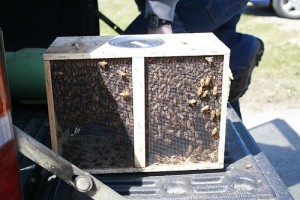Imbolc Waning Wild Moon
Fake Nostalgia for a Pre-Therapy Age Past
“I can tell you one thing,” he announced, as I recall. “Back in my day, you didn’t have young kids going around talking to shrinks, yakking about their fee-ee-ee-lings, getting all doped up on medications.”
This article in the March 8th NYT made me think, or better, recall.
In early October of 1964 my family was intact: Mom, Dad, Mary, Mark and me. We had extended family on both sides that we saw regularly, Mom’s more so because she was Indiana born and Dad’s less so because of his Oklahoma origins. After my bout with polio when I was a year and a half, our lives had settled into a usual routine of those years, the late 50’s and early 60’s.
Mom stayed home, doing volunteer work for the church and being available to us, the kids. She did occasional substitute teaching, but it was rare. Mary and I moved our way through our small town school system where we were known and knew everyone else at least by sight. Mark was still at home. Summers were long idylls of bike riding, game playing and lazy reading. Dad worked at the newspaper, coming home with ad layouts from time to time, marking them up with a ruler and a thick pencil.
Of course our lives had the usual family dramas, the deaths of grandparents, an aunt’s long term confinement in a mental health facility, but for the most part things were calm, normal.
In late October of 1964 my 46 year old mother was dead and our lives would never again be normal. Grief has its own rules, its own storm sewers of emotion and they track in and out, colliding with the needs and fears of others. Our small family suffered and suffered a lot, both from the grief, the natural grief that follows an untimely death of a parent, Mom, and the sudden compression of the family into a new, undefined life, a life defined by loss and uncertainty.
Life happens as it does and we relate to the changes as best we can. That was true then, true long ago in the past and will be true in the future. I have wondered though what our lives, our mutual lives, the lives of the survivors in our family might have been like if we had access to even the most basic of therapeutic assistance. If we could have, if I could have, for I can’t speak for Mary, Mark and Dad, grieved Mom’s loss and then moved on with my life, rather than heading toward a ten to fifteen year period where emotional ups and downs, too much drinking, too much smoking, too little in the way of sound relationships eventually forced me to do what I was unable to do in those horrible months following her death.
This is not a regret, for it is not what happened, rather it is a what if. It is a what if informed now by many, many years of therapy, therapy that helped me see myself as I really am, accept myself and my feet of clay, feet not so different from everyone else’s. Analysis, Jungian analysis, that in the end gave me a place to stand that was my own, not a place over against the grief and the abandonment of those years. Analysis that afforded me a chance to live into my own Self, live my own life and find, now, in my 60’s, a way of life that has a measure of peace and more than a measure of contentment and happiness.
I agree with the author of the article referenced in the beginning. It was not a better time, those pre-therapy years.

 mentor, had a traumatic autumn and we just didn’t get together quite enough.
mentor, had a traumatic autumn and we just didn’t get together quite enough. this afternoon. That means the whole bee thing looks more and more rosy here at 7 Oaks. In the second year we can expect honey. And a second hive. Good thing I’m taking this class.
this afternoon. That means the whole bee thing looks more and more rosy here at 7 Oaks. In the second year we can expect honey. And a second hive. Good thing I’m taking this class.